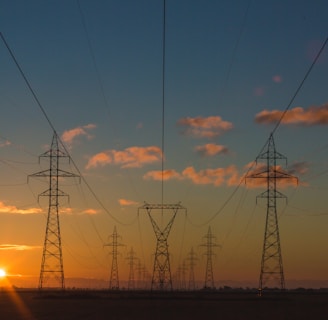Applicability of Electricity Duty on Self-Generated Power
TAXELECTRICITY


In Civil Appeals Nos. 256 to 472 of 2011, the Supreme Court of Pakistan considered whether companies generating electricity for their own use (using generators with a capacity exceeding 500 KW) are liable to pay electricity duty under Section 13 of the Punjab Finance Act, 1964, as amended by the Punjab Finance Ordinance, 2001 (2024 SCP 348). The Court ruled that companies generating electricity for self-use are not liable to pay electricity duty, as the taxing event requires a supply of electricity to a consumer, which does not occur when the electricity is consumed by the generator owner itself. The appeals filed by the Government of Punjab were dismissed.
Background:
The respondents, various industrial and commercial entities, used generators exceeding 500 KW to produce electricity for their own consumption. The Punjab Government issued a notification in 2001, under which entities using such generators were classified as "licensees" and required to pay electricity duty. The respondents challenged this imposition, arguing that the duty could not be applied to self-consumed electricity. The Lahore High Court ruled in favor of the respondents, leading the Government of Punjab to appeal to the Supreme Court.
Key Issues:
Levy of Electricity Duty Under Section 13 of the Punjab Finance Act, 1964: Whether the generation of electricity for self-use constitutes a "taxable event" under Section 13, which imposes electricity duty on the supply of electricity to consumers.
Interpretation of "Licensee" Under the 2001 Ordinance: Whether entities generating electricity for their own use, but classified as "licensees" under the amended law, are subject to electricity duty.
Court's Analysis:
Taxable Event Under Section 13: The Court examined the language of Section 13(1), which states that electricity duty is levied on "units of energy consumed for the purposes specified in the first column of the Fifth Schedule." The Court held that the taxable event under this section requires two conditions: the consumption of energy and the supply of that energy to a consumer. The Court clarified that the duty applies only when energy is supplied to a consumer, and there must be a separate consumer for the levy to be triggered.
Self-Consumption of Energy: The Court emphasized that when entities generate electricity for their own use, there is no "supply" in the sense intended by the law. The generation and consumption occur within the same entity, meaning no transfer or supply to an external consumer takes place. As such, the essential condition for the imposition of the duty-supply to a consumer-is not met.
Interpretation of "Licensee": While the 2001 amendment expanded the definition of "licensee" to include entities generating electricity for self-use, the Court ruled that this change did not alter the fundamental nature of the taxing event. The classification of such entities as "licensees" did not automatically subject them to the duty, as the law still required a supply to an external consumer.
Principle of Favorable Interpretation: The Court applied the well-established principle that when multiple interpretations of a tax statute are possible, the interpretation most favorable to the taxpayer should be adopted. Since the respondents' interpretation that self-consumption of electricity does not trigger the duty was reasonable and aligned with the language of the statute, the Court adopted it.
Court's Conclusion: The Supreme Court dismissed the appeals, holding that the respondents are not liable to pay electricity duty on the electricity generated and consumed for their own use. The Court clarified that the levy under Section 13 of the Punjab Finance Act, 1964, applies only when electricity is supplied to a consumer, which does not occur in the case of self-consumption.
Contact Us:
For specialized legal assistance in tax and energy law, including disputes regarding electricity duty, contact AUJ LAWYERS LLP. Our expert team provides comprehensive legal guidance on taxation, energy regulations, and compliance matters.
We are here to help
Talk to our lawyers today. We tailor our services around your legal needs so that we can reach the desired outcome together.


